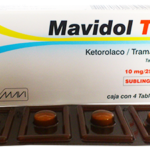Duloxetine 30 mg: Uses, Dosage, Side Effects, Reviews

What is Duloxetine?
Duloxetine available under the brand name Cymbalta is a medication used to treat depression in adults and generalized anxiety disorder (GAD; excessive worry and tension that disrupts daily life and lasts for 6 months or longer) in adults and children 7 years of age and older. Duloxetine is also used to treat pain and tingling caused by diabetic neuropathy (damage to nerves that can develop in people who have diabetes) in adults and fibromyalgia (a long-lasting condition that may cause pain, muscle stiffness and tenderness, tiredness, and difficulty falling asleep or staying asleep) in adults and children 13 years of age and older.
Duloxetine is also used to treat ongoing bone or muscle pain such as lower back pain or osteoarthritis (joint pain or stiffness that may worsen over time) in adults. Duloxetine is in a class of medications called selective serotonin and norepinephrine reuptake inhibitors (SNRIs). It works by increasing the amounts of serotonin and norepinephrine, natural substances in the brain that help maintain mental balance and stop the movement of pain signals in the brain.
Duloxetine is also sometimes used to treat stress urinary incontinence (leakage of urine during physical activity such as coughing, sneezing, laughing, and exercise) in women. Talk to your doctor about using this medication to treat your condition.
How should I take Duloxetine 30 mg?
Duloxetine comes as a delayed-release (releases the medication in the intestine to prevent break-down of the medication by stomach acids) capsule to take by mouth. When duloxetine is used to treat depression, it is usually taken once or twice a day with or without food. When duloxetine is used to treat generalized anxiety disorder, the pain of diabetic neuropathy, fibromyalgia, or ongoing bone or muscle pain, it is usually taken once a day with or without food. Take duloxetine at around the same time(s) every day. Follow the directions on your prescription label carefully, and ask your doctor or pharmacist to explain any part you do not understand. Take duloxetine exactly as directed. Do not take more or less of it, take it more often, or take it for a longer time than prescribed by your doctor.
Swallow the delayed-release capsules whole; do not split, chew, or crush them. Do not open the delayed-release capsules and mix the contents with liquids or sprinkle the contents on food.
Your doctor may start you on a low dose of medication and increase your dose after one week.
Duloxetine may help control your symptoms but will not cure your condition. It may take 1 to 4 weeks or longer before you feel the full benefit of duloxetine. Continue to take duloxetine even if you feel well. Do not stop taking duloxetine without talking to your doctor. Your doctor will probably decrease your dose gradually. If you suddenly stop taking duloxetine, you may experience withdrawal symptoms such as nausea; vomiting; diarrhea; anxiety; dizziness; tiredness; headache; pain, burning, numbness, or tingling in the hands or feet; irritability; difficulty falling asleep or staying asleep; sweating; and nightmares. Tell your doctor if you experience any of these symptoms when your dose of duloxetine is decreased.
What are the side effects of Duloxetine 30 mg?
Some side effects may occur when using Duloxetine. Usually, these side effects do not need medical attention. These side effects may go away during treatment as your body adjusts to the medicine. Also, your health care professional may be able to tell you about ways to prevent or reduce some of these side effects. Check with your health care professional if any of the following side effects continue or are bothersome or if you have any questions about them:
More common
- Body aches or pain
- cough
- difficulty having a bowel movement (stool)
- dry mouth
- ear congestion
- frequent urination
- headache
- lack or loss of strength
- loss of appetite
- loss of voice
- muscle aches
- nausea
- sleepiness or unusual drowsiness
- sneezing
- sore throat
- stuffy or runny nose
- sweating increased
- trouble sleeping
- weight loss
Less common
- Abnormal ejaculation
- abnormal orgasm
- acid or sour stomach
- belching
- burning, crawling, itching, numbness, prickling, “pins and needles”, or tingling feelings
- change in taste
- change or problem with discharge of semen
- decreased interest in sexual intercourse
- difficulty with moving
- feeling of warmth or redness of the face, neck, arms, and occasionally, upper chest
- heartburn
- inability to have or keep an erection
- indigestion
- longer than usual time to ejaculation of semen
- loose stools
- loss in sexual ability, desire, drive, or performance
- loss of taste
- muscle cramps, pains, or stiffness
- shakiness in the legs, arms, hands, or feet
- stomach discomfort or upset
- sudden sweating
- swollen joints
- trembling or shaking of the hands or feet
Other side effects not listed may also occur in some patients. If you notice any other effects, check with your healthcare professional.
Call your doctor for medical advice about side effects. You may report side effects to the FDA at 1-800-FDA-1088.
What special precautions should I follow?
Before taking duloxetine,
• tell your doctor and pharmacist if you are allergic to duloxetine, any other medications, or any of the ingredients in duloxetine delayed-release capsules. Ask your doctor or pharmacist for a list of the ingredients.
• tell your doctor if you are taking thioridazine or a monoamine oxidase (MAO) inhibitor, such as isocarboxazid (Marplan), linezolid (Zyvox); methylene blue; phenelzine (Nardil), selegiline (Eldepryl, Emsam, Zelapar), and tranylcypromine (Parnate), or if you have stopped taking an MAO inhibitor within the past 14 days. Your doctor will probably tell you not to take duloxetine. If you stop taking duloxetine, you should wait at least 5 days before you start to take an MAO inhibitor.
• tell your doctor and pharmacist what other prescription and nonprescription medications and vitamins you are taking or plan to take. Be sure to mention any of the following: anticoagulants (‘blood thinners’) such as warfarin (Coumadin, Jantoven); antidepressants such as amitriptyline (Elavil), amoxapine (Asendin), clomipramine (Anafranil), desipramine (Norpramin), doxepin (Adapin, Sinequan), imipramine (Tofranil), nortriptyline (Aventyl, Pamelor), protriptyline (Vivactil), and trimipramine (Surmontil); antihistamines; aspirin and other nonsteroidal anti-inflammatory drugs (NSAIDs) such as ibuprofen (Advil, Motrin) and naproxen (Aleve, Naprosyn); buspirone; cimetidine (Tagamet); diuretics (‘water pills’); fentanyl (Abstral, Actiq, Fentora, Onsolis, others); medications for irregular heartbeat such as amiodarone (Cordarone), flecainide (Tambocor), moricizine (Ethmozine), propafenone (Rythmol), and quinidine (Quinidex); medications for anxiety, high blood pressure, mental illness, pain, and nausea; propranolol (Inderal); medications for migraine headaches such as almotriptan (Axert), eletriptan (Relpax), frovatriptan (Frova), naratriptan (Amerge), rizatriptan (Maxalt), sumatriptan (Imitrex), and zolmitriptan (Zomig); lithium (Eskalith, Lithobid); proton pump inhibitors such as lansoprazole (Prevacid), omeprazole (Prilosec), pantoprazole (Protonix), and rabeprazole (Aciphex); quinolone antibiotics such as ciprofloxacin (Cipro) and enoxacin (Penetrex); sedatives; certain selective serotonin reuptake inhibitors (SSRIs) such as fluoxetine (Prozac, Sarafem), fluvoxamine (Luvox) and paroxetine (Paxil); sibutramine (Meridia); sleeping pills; theophylline (Theochron, Theolair); tramadol (Ultram); and tranquilizers. Many other medications may interact with duloxetine, so be sure to tell your doctor about all the medications you are taking, even those that do not appear on this list. Your doctor may need to change the doses of your medications or monitor you carefully for side effects.
• tell your doctor what nutritional supplements and herbal products you are taking, especially products containing St. John’s wort or tryptophan.
• tell your doctor if you drink or have ever drunk large amounts of alcohol or if you use or have ever used street drugs or have ever overused prescription medications. Also, tell your doctor if you have or have ever had a heart attack; high blood pressure; seizures; coronary artery disease (blockage or narrowing of the blood vessels that lead to the heart); or heart, liver, or kidney disease. If you have diabetes, be sure to talk to your doctor about how serious your condition is so your doctor can decide if duloxetine is right for you.
• tell your doctor if you are pregnant, especially if you are in the last few months of your pregnancy, or if you plan to become pregnant or are breastfeeding. If you become pregnant while taking duloxetine, call your doctor. Duloxetine may cause problems in newborns following delivery if it is taken during the last months of pregnancy.
• if you are having surgery, including dental surgery, tell the doctor or dentist that you are taking duloxetine.
• you should know that duloxetine may make you drowsy, dizzy, or may affect your judgment, thinking or coordination. Do not drive a car or operate machinery until you know how this medication affects you.
• ask your doctor about the safe use of alcoholic beverages while you are taking duloxetine. Alcohol can increase the risk of serious side effects from duloxetine.
• you should know that duloxetine may cause dizziness, lightheadedness, and fainting when you get up too quickly from a lying position. This is more common when you first start taking duloxetine or with an increase in dose. To avoid this problem, get out of bed slowly, resting your feet on the floor for a few minutes before standing up.
• you should know that duloxetine may cause high blood pressure. You should have your blood pressure checked before starting treatment and regularly while you are taking this medication.
• you should know that duloxetine may cause angle-closure glaucoma (a condition where the fluid is suddenly blocked and unable to flow out of the eye causing a quick, severe increase in eye pressure which may lead to a loss of vision). Talk to your doctor about having an eye examination before you start taking this medication. If you have nausea, eye pain, changes in vision, such as seeing colored rings around lights, and swelling or redness in or around the eye, call your doctor or get emergency medical treatment right away.





